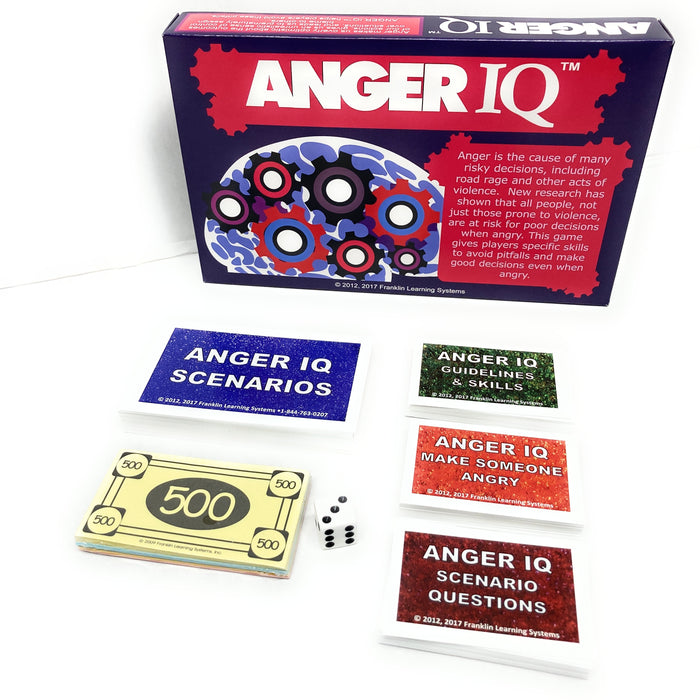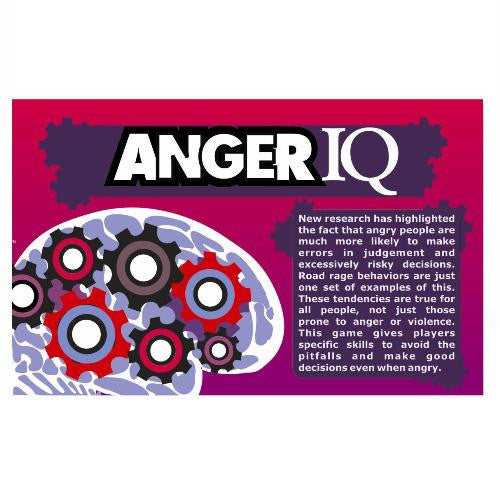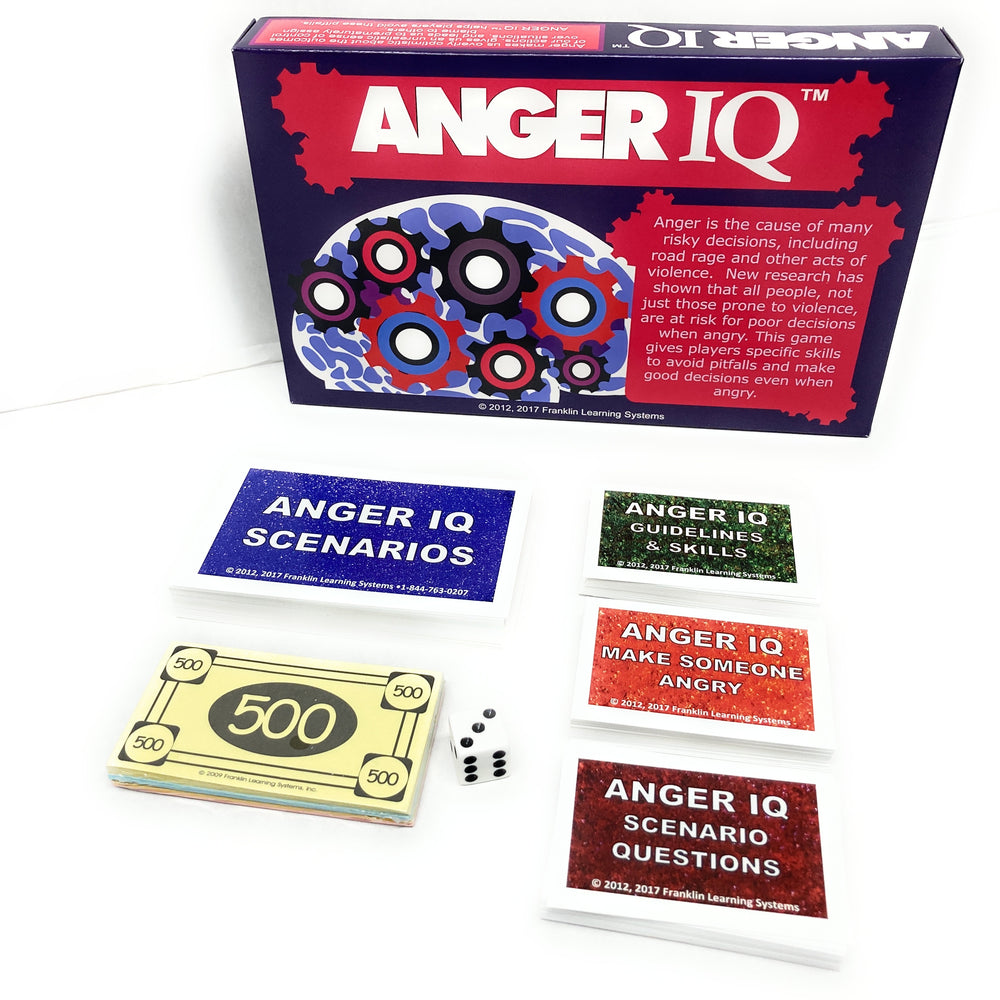Anger IQ (adolescence thru adult)
- Educates players about the hazards of irrational thinking associated with anger
- Give plays practice avoiding them by using a set of principles for dealing with anger
- Players will translate this rehearsal of responsible decisions made under conditions of anger to the real world
- Suitable for ages 14 through young adult
The Anger IQ game educates players about the hazards of irrational thinking associated with anger, and gives them practice avoiding them by using a set of principles for dealing with anger. Players will translate this rehearsal of responsible decisions made under conditions of anger to the real world. This combined use of CBT (Cognitive Behavioral Therapy) and Social Learning Theory is particularly effective.
This game is unique in its approach and is an extremely effective tool used alone or as a complement to anger control skills and other training methods that individuals have previously experienced.
Learning Objectives
Players will learn:
1. to handle anger in a thoughtful, non-violent manner;
2. that decisions made in anger can cause dangerous outcomes;
3. that blame is not an option in helping to control angry situations, and
4. methods of anger reduction
Suitable for ages 14 through young adult
About Anger & Cognitive Distortions
Our emotions have an important and far reaching impact on our attitudes, decisions, and actions. Positive emotions, such as happiness and hopefulness tend to make us optimistic, while negative emotions, such as sadness and uncertainty lead to pessimism.
Recent research has established that one negative emotion, anger, is completely different in its impact than other negative emotions, often with disastrous consequences for the angry person and others. This research, in addition to showing that anger breeds optimism, has shown that the anger makes people:
exceedingly optimistic about the success of their own actions,
eager to act quickly, and careless in their analyses of the situations that cause the anger. Angry people are more likely to:
blame a person rather than the situation for the problem that caused the anger,
be overly optimistic about the likelihood of positive outcomes of anticipated action,
discount, or even totally ignore, the chances of negative outcomes occurring, and
be more likely to use stereotypes and other cognitive shortcuts for making decisions.
It is apparent that these factors make the angry person at risk for poor and excessively risky decisions. The above is true of most angry people, not just those who are prone to anger or violence. Blame plays an especially important role. Angry people feel an urgent need to assign responsibility for the event that caused the anger. The blame causes more anger, and the anger results in more intense blame. Blame and anger feed off of each other in this recursive relationship, resulting in even greater mistakes caused by the factors outlined above. Learning anger control skills, such as delaying action by counting to ten or self-talk can help prevent bad decisions; however, direct knowledge of how anger affects the decision making process can give individuals an extremely useful tool to avoid all the mistakes listed above. The Anger IQ game does exactly this.
Publication date: May 2012



